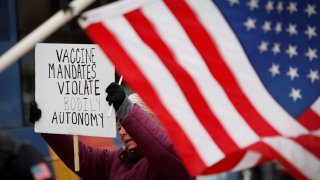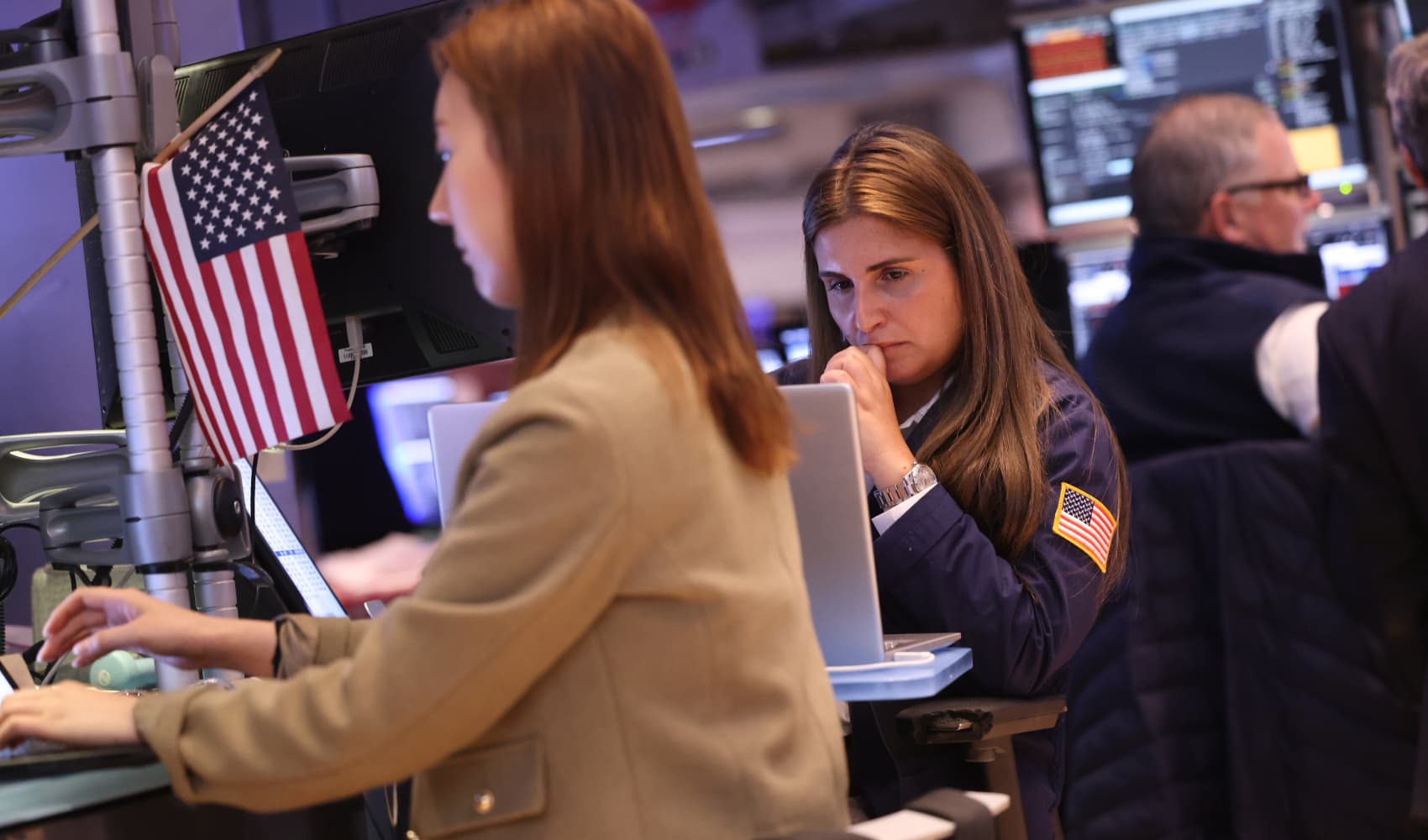
- The Supreme Court began hearing oral arguments in two cases challenging the Biden administration's Covid vaccination and testing requirements for private businesses and health-care workers.
- President Biden had issued the mandates before the first detection of omicron variant, which has since spurred record infection rates nationwide.
- The debate centers on whether the federal government has the authority to enforce the sweeping public health measures.
The Supreme Court's conservative majority on Friday sounded skeptical of the Biden administration's sweeping Covid vaccination-or-testing requirements for private businesses.
The justices questioned the Labor Department's health rules, as well as a federal vaccine mandate for health-care workers, during oral arguments that were ongoing after nearly three hours.
The arguments, which started at 10 a.m. ET, kicked off with a lawyer for a national small-business group arguing against the private-business rules, which would apply to tens of millions of workers.
Feeling out of the loop? We'll catch you up on the Chicago news you need to know. Sign up for the weekly Chicago Catch-Up newsletter here.
The arguments concluded four hours later. The court is set to reconvene at 10 a.m. Monday.
The Biden administration has postponed enforcement of the vaccine and testing requirements until Feb. 9. The rest of the mandate, which includes masking for unvaccinated workers, is set to go into effect on Monday.
National Federation of Independent Business attorney Scott Keller was grilled by the court's three liberal justices, who at times sounded incredulous about the proposal to halt the workplace health precautions while Covid cases surge to new heights.
Money Report
Conservative Chief Justice John Roberts questioned Keller about why the Labor Department did not have the authority to regulate the "special workplace problem" posed by the pandemic.
But Roberts also expressed skepticism while questioning Solicitor General Elizabeth Prelogar, arguing for the Biden administration, about the federal government's efforts.
"It seems to me that the government is trying to work across the waterfront," he said.
Roberts is likely a must-have vote for the Biden administration's rules to survive the high court's 6-3 conservative majority.
Brett Kavanaugh and Neil Gorsuch, two of the three sitting justices appointed by former President Donald Trump, asked about the applicability of the "major questions doctrine," which would require Congress to weigh in on matters of such significance.
Justice Samuel Alito, a reliable conservative vote, pushed Prelogar on the question of whether the vaccines pose a health risk, even as he stressed that he was not disputing that the Covid shots have been deemed safe and effective.

It is unclear when the court will issue rulings in the time-sensitive cases. Keller asked the justices to act "now" to block the rule "before enforcement starts," arguing that workers will quickly quit their jobs if OSHA's schedule is upheld.
The debate, which centers on whether the federal government has the authority to enforce the sweeping public health requirements, arrives at the high court as the pandemic enters its third year.
The rules' challengers include business associations, Republican-led states and religious groups. Court rulings on the emergency requests are expected relatively soon.
The Occupational Safety and Health Administration's rule, which requires workers to get vaccinated or be tested for Covid on a weekly basis, applies to companies with 100 or more employees. The rule from the Department of Health and Human Services would require vaccination for health-care workers in facilities that treat Medicare and Medicaid patients.
The two mandates cover roughly two-thirds of all U.S. workers — about 100 million Americans, according to the White House.
President Joe Biden issued the mandates in early November, weeks before the first detection of the highly transmissible omicron variant drove infection rates to staggering new highs around the country.
Days later, the U.S. Court of Appeals for the 5th Circuit blocked the mandate for businesses from taking effect, with a three-judge panel ruling that its requirements were "staggeringly overbroad."
But another federal appeals court reinstated the rule in December, ruling that OSHA has historically had wide latitude to enact safety measures, highlighting the danger to workers posed by the pandemic.
Early data suggest omicron infections tend to be less severe than prior iterations of the coronavirus, and vaccination remains an effective defense against hospitalization and death from Covid. However, epidemiologists have warned that omicron, which is more transmissible, could still cause a surge of severe illness that stresses the health-care system simply by infecting many more people.
All nine justices of the Supreme Court have been vaccinated against Covid, and all have received booster shots. The court has heard arguments remotely for much of the pandemic, livestreaming audio of the proceedings for the first time in its history. They returned to in-person arguments last October, while keeping the building closed to the public and implementing other pandemic-related safety measures.






